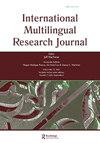使用多种语文对可持续发展的价值:以澳大利亚语言为例
IF 2.1
1区 文学
Q2 EDUCATION & EDUCATIONAL RESEARCH
引用次数: 0
摘要
摘要本文提出语言是现代社会可持续发展的重要资源。根据社会语言学和语言经济学关于语言技能价值的理论,认为语言在多语言社会中具有不同的价值。社会语言学家经常强调语言对使用者的价值,并强调社会正义和语言平等的重要性。语言经济学家认为,精通主流语言以外的语言是一种人力资本形式,可以带来一系列直接或间接的好处。在语言经济学中,这被非市场和市场价值的概念所捕获。本文以澳大利亚语言状况为例,认为移民引发的多语制应该从两个角度得到更多的支持。本文采用理论生成的方法,认为多语制是澳大利亚人力资本的重要补充。为了经济和社会层面的可持续发展,似乎有必要维持和支持语言,使国家能够满足当前和未来的语言需求。这些语言需求包括就业市场需求,但也延伸到社会参与和凝聚力的其他方面。本文章由计算机程序翻译,如有差异,请以英文原文为准。
The value of multilingualism for sustainable development: a case study of languages in Australia
ABSTRACT This paper forwards the notion that languages are an important resource for sustainable development for modern societies. Informed by theories from both sociolinguistics and language economics on the value of language skills, it is suggested that language(s) have different kinds of value in multilingual societies. Sociolinguists often emphasize the value languages have to their speakers and highlight the importance of social justice and equality between languages. Language economists argue that proficiencies in languages other than the dominant language are a form of human capital that can have a range of direct or indirect benefits. In language economics this is captured by the concepts of non-market and market value. Based on the example of the situation of languages in Australia, this paper argues that migration-induced multilingualism deserves more substantial support from both perspectives. Employing a theory-generating approach, this paper argues that multilingualism forms an important addition to Australia’s human capital. For sustainable development, both on economic and social levels, it appears necessary to maintain and support languages in order to enable the country to cater for present and future linguistic needs. These linguistic needs include job market demands, but extend to other aspects of social participation and cohesion.
求助全文
通过发布文献求助,成功后即可免费获取论文全文。
去求助
来源期刊
CiteScore
4.10
自引率
4.80%
发文量
19
期刊介绍:
The International Multilingual Research Journal (IMRJ) invites scholarly contributions with strong interdisciplinary perspectives to understand and promote bi/multilingualism, bi/multi-literacy, and linguistic democracy. The journal’s focus is on these topics as related to languages other than English as well as dialectal variations of English. It has three thematic emphases: the intersection of language and culture, the dialectics of the local and global, and comparative models within and across contexts. IMRJ is committed to promoting equity, access, and social justice in education, and to offering accessible research and policy analyses to better inform scholars, educators, students, and policy makers. IMRJ is particularly interested in scholarship grounded in interdisciplinary frameworks that offer insights from linguistics, applied linguistics, education, globalization and immigration studies, cultural psychology, linguistic and psychological anthropology, sociolinguistics, literacy studies, post-colonial studies, critical race theory, and critical theory and pedagogy. It seeks theoretical and empirical scholarship with implications for research, policy, and practice. Submissions of research articles based on quantitative, qualitative, and mixed methods are encouraged. The journal includes book reviews and two occasional sections: Perspectives and Research Notes. Perspectives allows for informed debate and exchanges on current issues and hot topics related to bi/multilingualism, bi/multi-literacy, and linguistic democracy from research, practice, and policy perspectives. Research Notes are shorter submissions that provide updates on major research projects and trends in the field.

 求助内容:
求助内容: 应助结果提醒方式:
应助结果提醒方式:


